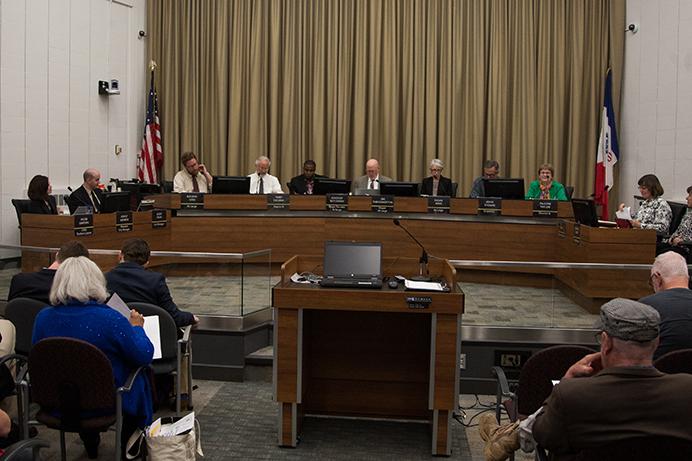By Naomi Hofferber
naomi-hofferber@uiowa.edu
The Iowa City City Council on Tuesday approved 7-0 an amendment to the 2017 Fiscal Year Operating Budget and OK’d the proposed 2018 Fiscal Year Operating budget.
The fiscal 2018 budget, which will begin July 1, aims to continue providing resources for the strategic plan goals, maintaining the city’s Moody AAA bond rating, and ensuring taxes are at an affordable level.
“I think we’re still in the midst of executing the strategic plan that we developed last year,” Councilor John Thomas said. “But I think we’ve made really remarkable progress on our strategic plan. I’m pleased with the efforts on our side as well as the efforts of our staff as well as on the community side in moving our strategic plan forward.”
City Manager Geoff Fruin presented the council with a look at the future of the budget and trends from past years.
“We’ve had some really good growth; we’ve been able to build some healthy reserves,” he said. “We’ve had success with debt restructuring and early retirements, and that has put us in a good strong position, but year after year, we continue to deal with the erosion of our tax base.”
Fruin said the city lacks confidence in the state to keep its backfill for a long period of time and is preparing if that time comes.
In the 2013 tax amendment, the city reduced the tax of commercial and industrial properties to 90 percent of their value. The 10 percent difference is covered by the backfill, state funding that allows for this amendment. It saves the city around $1.5 million annually.
The tax rate for multi-residential properties is also to drop in the coming years, and reach 63.75 percent of the value in 2023.
“The growth that we’ve had, particularly the last year and the last couple of years, has really helped us manage the first few years of our property-tax reform,” Fruin said.
He said the 2017 year was well on track to match the 2016 building permit revenue.
Councilor Susan Mims expressed concern over consistency in numbers with regard to building permit revenue.
“I think we need to be really cautious when we look at the building-permit revenue and the value of new construction in the last couple of years. Look at that graph that they show for the 2016 building permit revenue was like … over $2 million where we had been,” Mims said. “The decisions and actions that led to those building permits were things that may have been two or three or four years in the making. Building permits don’t come up overnight. When you look back over the last roughly 14 months, our planning and zoning agenda and the planning zoning commission, and what we’ve been acting on in terms of planning and zoning here at the council level has been absolutely dearth in terms of major projects.”



